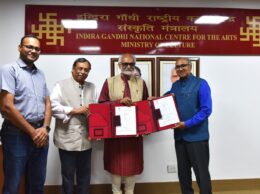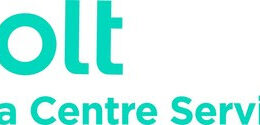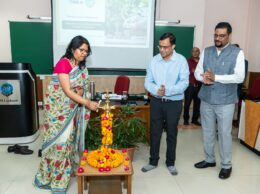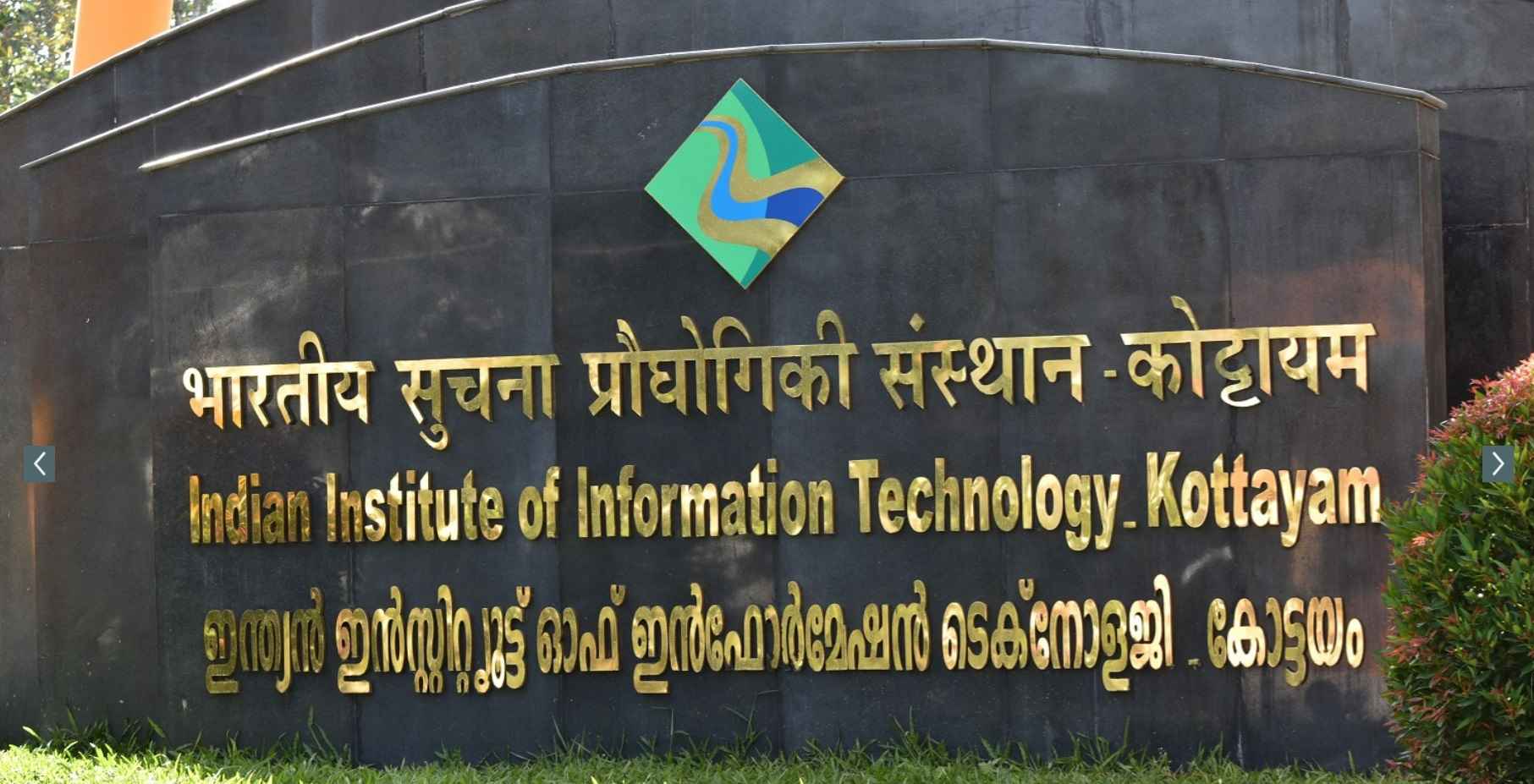By Rudra Narayan Sahoo, New Delhi: More than half of the population in India is below 25 years of old. This demographic dividend is an advantage to India if the nation knows it how to leverage it. The higher education system should be inclusive, holistic and efficient to meet the expectations of youths. In 2016 the Indian education system has seen many significant trends that have profound impact on all stakeholders of the landscape.
The ongoing process of formulating New Education Policy, operationalisation of new Indian Institutes of Technology (IITs), and new MPhil and PhD regulation are some of the key developments in 2016. Also the Ministry of HRD has already shared the Draft of World Higher Educational Institutes Regulations with public for their comments and feedback. The share of female students in higher education is not showing any significant improvement despite multiple efforts. On this backdrop in 2016, SkillOutlook presents the Top Ten developments in the Higher Education system in India.
1.National Education Policy at the final stage: After more than three decades New Education Policy is set to take shape as the government of India is giving final touch to the Draft of the NE P. NEP will broadly highlights the government’s agenda, approach and course of action for keeping our education system dynamic and improving quality of education and research. In September 2016, the HRD Ministry shared some part of the Draft of NEP with public inviting their comments.
The draft of NEP says that the government will set up a mechanism for administering National Higher Education Fellowship Programme and establish a central Educational Statistics Agency (CESA) as the central data collection, compilation and consolidation agency. The NEP proposes that Education Commission comprising of academic experts will be set up, every five years to assist the Ministry of HRD. The NEP is expected to be released in a couple of months.
2.New IITs and IIM opened in 2016: Four new Indian Institutes of Technology (IITs) has commenced classes from academic year 2016-17. These national institutes have already started first academic session from 2016-17: IIT Goa, IIT Bhilai (Chattishgarh), IIT Jammu (Jammu & Kashmir), and IIT Dharwad (Karnataka). With these new IITs, total number of IITs reached 23 while total number of seats for various BTech courses offered by these IITS stood at 10,572 for the academic year 2016-17.
In the Indian Institute of Management (IIM) club, IIM Jammu enlisted its name as it started operation in 2016. It is being mentored by IIM Lucknow. Hence, total IIMs in India now stands at 20. This month the Union Cabinet has approved the establishment and operationalisation of IIM Jammu in a transit/temporary campus at Old Government College of Engineering & Technology from the Academic Year 2016-17.
3.New MPhil and PhD regulation: The UGC (Minimum Standards and Procedure for Award of MPhil/PhD Degrees) Regulations 2016 has been notified in July 2016. New rules for award of research degrees such as MPhil and PhD at Indian universities aim at streamline admission process, improving quality research education and fixing administration system. Further, the new rules aim at motivating women candidates to pursue research by relaxing some norms and greater flexibility.
A per new rules, MPhil programme shall be for a minimum duration of two (2) consecutive semesters / one year and a maximum of four (4) consecutive semesters / two years. For PhD course, the minimum duration of programme is three years, including course work while maximum duration of course is six years (6). The news norms have also standarised the eligibility criteria for MPhil and PhD under Indian Universities affiliated to the UGC while have framed proper procedure for the selection process.
4.Measures to boost inflows of Foreign Students into IITs and other institutes: For the first JEE Advanced 2017 will be on overseas countries. Initially the test will be held in six countries: Addis Ababa (Ethiopia), Colombo (Sri Lanka), Dhaka (Bangladesh), Dubai (UAE), Kathmandu (Nepal) and Singapore. Further, GATE 2017 will be held in above six foreign countries. In a bid to increase enrolment of foreign students in IITs and other premier institutes, these steps have been taken.
EdCIL (India) Limited, a “Mini Ratna (jewel)” Central Public Sector Enterprise, has launched a “Study in India” Education campaign for the year 2016-17. The campaign would be a one stop shop for providing information on latest offerings on Indian Education and facilitating admissions to the foreign students, NRIs and PIOs to make informed choices based on individual aptitudes and career goals.
5.Easing norms for collaboration with Foreign Universities: The Government of India announced new UGC foreign academic collaboration regulations. Indian Universities and Colleges, having the highest grade of accreditation/ threshold accreditation, will now be able to apply online to the University Grants Commission (UGC) for starting twinning and collaborative arrangement with quality Foreign Educational Institutions (FEIs) in undergraduate and postgraduate programmes leading to the award of a degree. The degree will be awarded by the Indian Educational Institutions (IEIs) alone; joint degrees are not permitted. However, the name of the collaborating FEI can be indicated on the degree, the logo and primacy being of the Indian institution. Credits from collaborating FEI when jointly signed by the IEI shall form part of the transcript. FEI may also sign the transcript/credit issued by the IEI.
6.Draft on Regulations and Guidelines for Establishment of 20 World Class Institutions: The government of India has been very serious to establish ten World Class Institutions each in public and private sector in a reasonable time by providing an enabling regulatory environment that allow them to achieve the highest levels of global excellence in teaching and research. Draft on Regulations and Guidelines for Establishment of 20 World Class Institutions is ready while Ministry of Human Resources Development invited public comments in October 2016.
As per the draft proposal, the entire process of establishment of 20 World Class Institutions will have following regulatory architecture proposed by the University of Grants Commission: UGC (Declaration of Government Educational Institutions as World Class Institutions) Guidelines, 2016, which would be applicable to all government owned & controlled Higher Educational Institutions; UGC (World Class Institutions Deemed to be Universities) Regulations, 2016, which would be applicable to both privately owned & controlled and government owned & controlled Higher Educational Institutions. As per the draft proposal, stringent norms have been stipulated for private players so that only serious institutions/parties can apply.
7.Project Vishwajeet: The Indian Institute of technology (IIT) Council has cleared Project Project Vishwajeet that aims to provide support to 7 IITs to feature among the world top ranking institutes rated by international ranking agencies. These IITs are Delhi, Bombay, Kanpur, Kharagpur, Madras, Rourkee, and Guwahati. These measures including filling 20% of vacant posts with foreign faculty, increase enrolment of foreign students up to 20% of total strength , improving faculty-student ratio to 1:7 and upgrading R & D facility.
8.National Scholarship Portal and DBT: National Scholarship Portal and Direct Benefits Transfer (DBT) are a game changer in the distribution disbursement of scholarships and fellowships to students across all levels. National Scholarships Portal is one-stop solution through which various services starting from student application, application receipt, processing, sanction and disbursal of various scholarships to Students are enabled. National Scholarships Portal is taken as Mission Mode Project under National e-Governance Plan (NeGP). Under DBT mode, monetary benefits are being transferred to eligible students and scholars to their bank accounts in their own names.
9.National Academic Depository, online data base of certificates: All stakeholders of education and employment sectors will immensely benefit from the National Academic Depository (NAD), which will be established and operationalised within the next three months and would be rolled out on a pan India basis in 2017-18. The Union Cabinet has already approved the step on 27 October 2017. NAD, online database of academic certificates, will maintain the authenticity, integrity and confidentiality of its database. Maintaining academic awards in a digital depository will immensely help educational institutions, students and employers by enabling online access and retrieval.
10.Skill Gaps and adverse female student enrolment in Higher Education twin problems: Due to existing Skills Gaps, the mismatch between industry expectations and skills possessed by job seekers, are a great concern for all the stakeholders of the skill landscape. Especially, education institutes have somehow failed to address the issue and the Indian corporate are paying heavily for it. As per ASSCHOM report, more than 90% of engineering students passed out from Tier II and Tier III educational institutes are lacking required skills to be employed in core engineering function.
Further, the enrolment of female students in higher education is low compared to male students. When overall Gross Enrolment Ratio (GER) in Higher Education at national levels in 2015 stood at 23.4%, female GER 23.2% compared 25.3 for male students. In the academic year 2013-14, at PhD level, 60% were male students while 40% are female. Participation in Higher Education can only empower women and generate employment opportunities.









